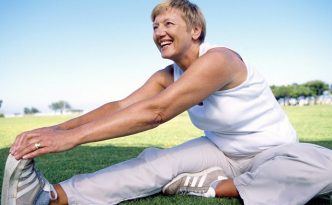
Stretching May Ease Women’s Depression and Menopause Symptoms
(This June 30th story was refiled to fix link at the bottom of the story) By Reyna Gobel (Reuters Health) – Stretching just 10 minutes a day might help ease menopause and depression symptoms in middle-aged women, a small study suggests. “Light-intensity exercises such as stretching have not been previously evaluated for its impact on menopausal and depressive symptoms,” lead researcher Yuko Kai told Reuters Health by email. Forty Japanese women, ages 40 to 61 years, participated in the study at the Physical Fitness Research Institute, Meiji Yasuda Life Foundation of Health and Welfare in Tokyo.